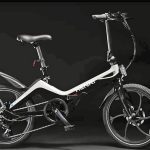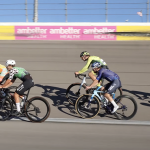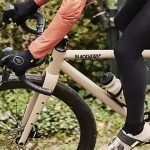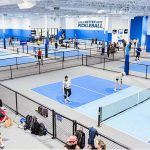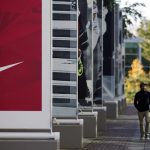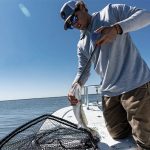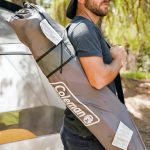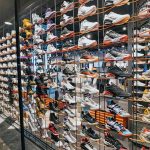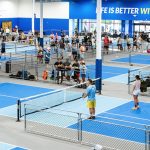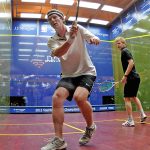Dutch cycling group Accell Group N.V. saw full year sales increase 6.0% to €572.6 million ($736.0 mm) in 2009, including 5% organic growth from ongoing product. Growth was driven by demand for electric bikes, bicycles, bicycle parts and accessories. Net profit rose 15.2% to €32.7 million ($45.6mm) for the year. Earnings per share came in at €3.30 ($4.60) in 2009, up 12% compared to 2008 earnings.
Accell Group N.V. Reports 6% Sales Gain for 2009
European bicycle manufacturer Accell Group N.V. reported sales increased by 6% to €572.6 million ($736.0mm) in 2009, including 5% organic growth. The company said it expected sales to grow this year, but said it was too difficult to predict economic developments for 2010.
Accell reported that demand for electric bikes remains strong and that its brands will continue working closely with specialty retailers to serve special target groups in each of their home markets. Accell Groups best known brands are Batavus, Bremshey, Ghost, Hai Bike, Hercules, Koga-Miyata,Lapierre, Loekie, Redline, Sparta, Staiger, Tunturi, Winora and XLC. The company has production facilities in the Netherlands, Germany, France and Hungary.
Net profit rose 15% to €32.7 million ($45.6mm). Earnings per share came in at €3.30 ($4.60) in 2009, up 12% compared from 2008.
The added value (net turnover minus materials costs and inbound transport costs) as a percentage of turnover was 36%, compared with 37% in 2008. This change was due to a shift in the types of
products sold, a higher level of outsourcing, lower inbound transport costs and higher discounts at the end of the season.
Accell Group had another good year in 2009, due in part to turnover growth in Germany and France, said René Takens, chairman of the board of directors of Accell Group. Electrical bikes, sports bikes and bikes for special target groups sold especially well. The market was more dynamic than in previous years. There were more shifts in the market, to which we had to respond quickly and effectively. This placed greater demands on our organizations ability to adjust, but also contributed to the growth of our results.
Bicycles / bicycle parts & accessories
The segment bicycles / bicycle parts & accessories saw a 9% increase in turnover to €543.0 million ($757.5mm). These activities therefore accounted for around 95% of Accell Groups total turnover. The demand for electric bicycles, mountain bikes and bicycles for special target groups in the middle and higher segment was strong, while bicycles without special innovations or contemporary design, such as traditional city bikes saw lower sales than in 2008. Turnover from electric bicycles accounts by now for more than 25% of turnover from bicycle sales. Turnover in bicycle parts & accessories also increased further.
The number of bicycles sold rose to 986,000, compared with 974,000 in 2008, and the average price of all bicycles sold increased to €439 $612.4) compared to €415 in 2008. The change in the sales mix and the increase in the sales of electric bikes and more expensive mountain bikes had a significant impact on the rise in the average price. The segment profit rose by 5% to €61.6 million ($83.7mm) from €58.6 million in 2008.
Bicycle markets last year saw more shifts in the types of bicycles sold. As a result, the initially higher order books (particularly for the Netherlands) did not transform directly into similarly higher seasonal turnover levels. On the other hand, turnover levels in Germany and France grew faster than could be assumed on the basis of the order books at the beginning of the bicycle season. The predictability of consumer demand has clearly decreased in 2009, which makes dealers more reluctant to place orders well in advance and more cautious with regard to building up inventories in the winter period. This effect is strengthened by more limited financing options for dealers.
.
The Netherlands saw a slight increase in turnover. Demand for electric bikes and bicycles for special target groups was again sound. The sale of traditional bikes in the mid segment and bicycles for children decreased. Accell Group again expanded its range of electric bikes, adding new models and other systems to make the company active at all relevant price levels. Turnover in bicycle parts and accessories was also higher, due to the increase in maintenance of and updates to existing bicycles, when customers postponed the purchase of a new bicycle.
Germany saw an increase in the sales of sports bicycles and mountain bicycles, including Hai Bike and Ghost. There was also a strong rise in the sale of electric bikes. Germany is something of a trendsetter in ‘green thinking in Europe, not just at the consumer level, but also at local and national government level. The bicycle industry has profited from this. It is clear that despite economic developments consumers seem prepared to invest in quality when buying a bicycle. The sale of bicycle parts & accessories also increased further in Germany, partly as a result of the rise in sales of
Accell Groups own XLC products. In France, Accell Group had another good year with its international top brand Lapierre. Turnover was up due to the increased sales of both racing bicycles and mountain bikes in Lapierres home market.
As in most other countries, France also saw an increase in the sales of bicycle parts & accessories, including XLC. Last year also saw the launch of a number of new models of Lapierre branded city bicycles and electric bicycles on the French market.
Accell Group further strengthened its position on the Scandinavian market with the acquisition of Hellberg. The integration of Tunturi and Hellberg in one organization is virtually complete. The costs of the integration were largely taken in 2009. The Finnish market was relatively badly affected by the economic downturn in 2009. Especially in the summer months, sales to consumers stagnated.
Turnover from parts & accessories rose slightly.
Exports of mainly sports bikes and mountain bikes to Spain, Austria and Switzerland increased. Turnover in Belgium (incl. Brasseur) showed a rising line, both in bicycles and in parts & accessories. In 2009, Brasseur became the distributor of Ghost and Redline bicycles for Belgium and Luxembourg.
Due to the impact of the economic developments in North America, Seattle Bike Supply (SBS) saw its bicycle turnover drop in the United States. Turnover of bicycle parts & accessories remained stable.
Fitness
Turnover in the fitness segment fell to €29.7 million ($41.4mm) in the past year, from €39.9 million in 2008. These activities accounted for around 5% of total Accell Group turnover. The segment result from the fitness segment dropped to € -/- 2.5 million in 2009, from € -/- 0.7 million in 2008.
In the past year, the fitness organization has been adapted to the lower turnover level, and further cost savings have been realized. In 2010, Accell Group will further adapt the organization, as well as
introduce fitness equipment for the professional market, thus broadening the basis of the fitness activities.


